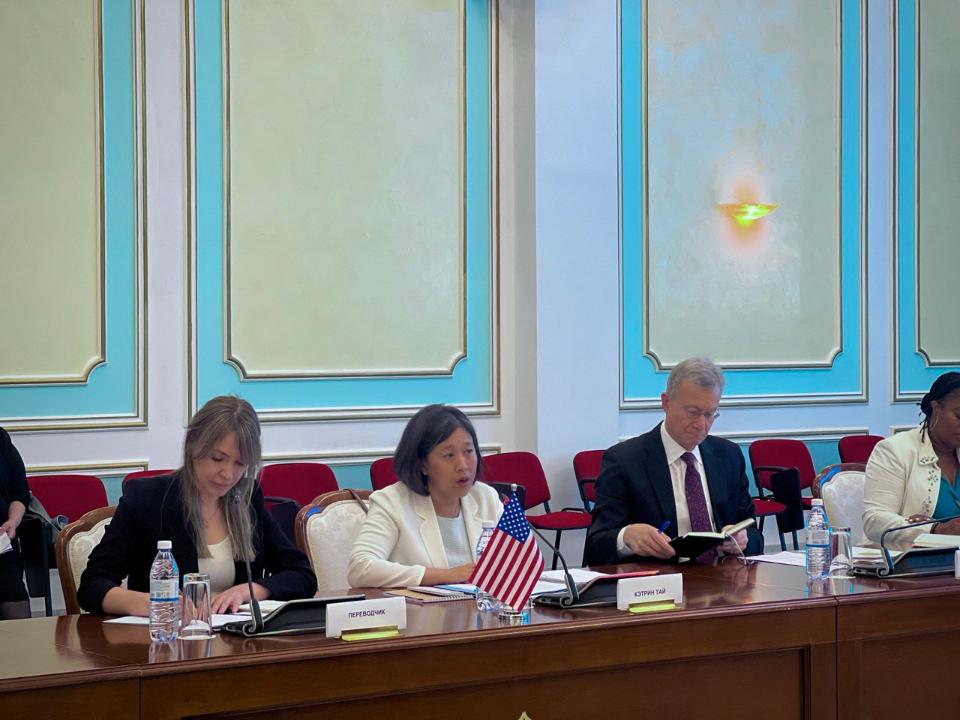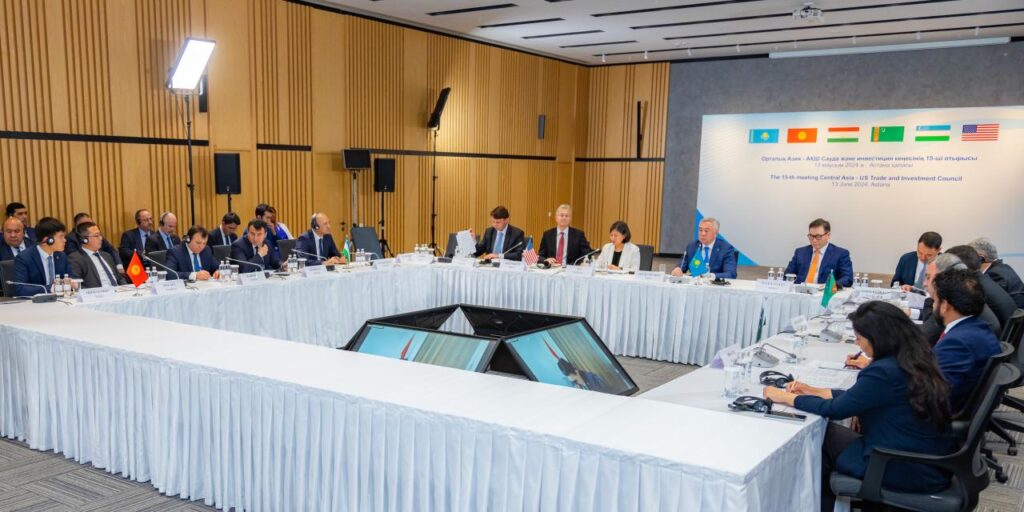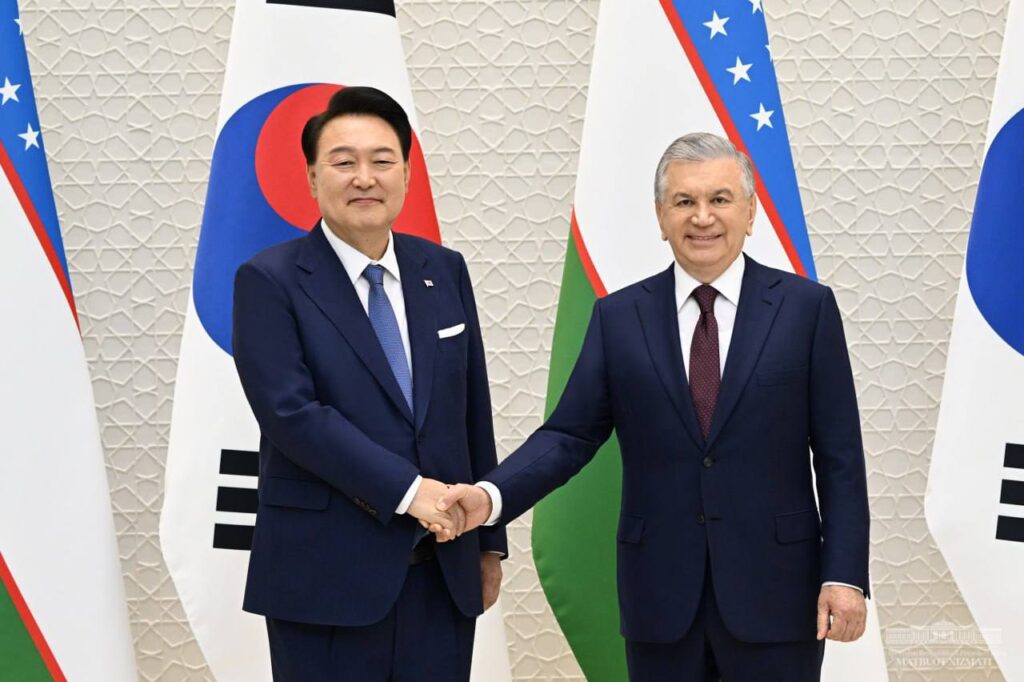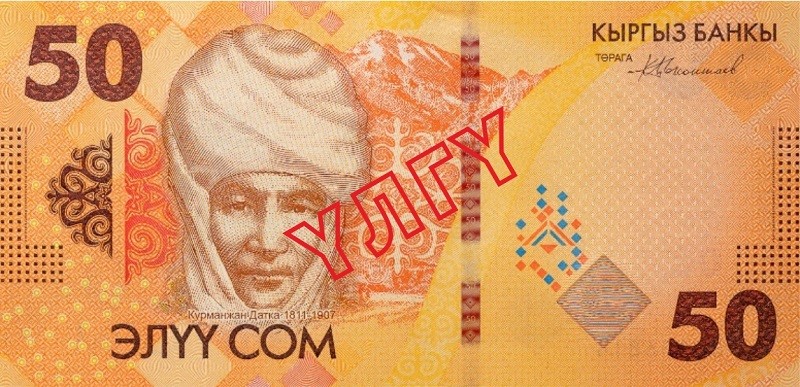Cannes Award-Winning Film, “Anora” Vexes Uzbek Public
American director Sean Baker’s film “Anora” was awarded the Palme d’Or at the 77th Cannes Film Festival for the comedy-drama genre. The film, about a prostitute from Uzbekistan, has sparked discussions in Uzbekistan on social networks.
Starring Mikey Madison, Mark Eidelshtein, and Yura Borisov, the film premiered on May 21st, 2024, at the 77th Cannes Film Festival, with the audience applauding the filmmakers for nine minutes after the screening. As a result, the film was awarded the “Golden Palm Leaf” on May 25th.
The movie’s events take place in Brooklyn, New York, USA. The main character, Anora, introduces herself as Ani, a 23-year-old Uzbek girl working as a dancer and sex worker in a nightclub. Ani meets a Russian, Vanya, in a club and starts a conversation, following which Vanya brings Ani to a luxurious house, where they drink alcohol, play video games, and enjoy the night together. The audience then learns that Vanya is the son of a wealthy Russian oligarch, and suddenly, he offers Ani the chance to fly to Las Vegas and marry him, presenting her with a four-carat diamond ring as proof of his intentions. Ani agrees, but the story does not end happily. Having learned about his son’s plan, Vanya’s father and his wife immediately fly from Russia to New York to persuade their son to cancel the marriage.
The interpretation of Ani has caused much conversation on the internet in Uzbekistan, and many expressing their displeasure with the movie’s portrayal of her.
“I didn’t see any image or reality in this film or in the comments about the film that indicate that Anora is Uzbek. I didn’t even read such a concept in the review. On the contrary, the comments talk about the novel of an American woman and a Russian man. Russian commentators are currently criticizing the subject of this film as an attempt to confuse Russian life without knowing Russian life. So, the heroes are an American woman and a Russian man, and the word Uzbek comes from the name only,” journalist Chori Latipov said on his Facebook page.
Social network users are worried that the film portrays Uzbek girls in a negative light. Lochinbek Amanov remarked that, “This is a complicated issue for an honorable nation.”
“There can be various reasons why such a film is developed and won at the festival,” journalist and screenwriter Sarvar Rahimi said. “First of all, they are angry that we are holding onto national and religious values instead of following their lead. Secondly, they have wrong assumptions about our nation.”
Shahrukh Abdurasulov, senior researcher in the Department of Theater and Choreography of the Academy of Sciences of the Republic of Uzbekistan and Doctor of Philosophy (PhD) in Art Studies, told The Times of Central Asia that it is true that some Uzbek girls make a living as prostitutes not only in the USA but in dozens of corners of the world. “This is the tragedy of our nation. However, many of our girls have studied at the world’s top universities and achieved the status of scholars, who are showing the intellectual power of Uzbek women to the world,” he stated.
Abdurasulov cites the example of Aziza Shonazarova, who became a professor at Columbia University at the age of 32. “Neither U.S. nor European filmmakers [create] a film about women scientists, not even a few minutes, and even if they do, the prestigious Cannes jury would never award it with the Palme d’Or and rate such films highly. Uzbeks are remembered only when prostitutes and dirty characters like that need a prototype.”
Abdurasulov also cited Russian film director, Pavel Lungin’s saying, “Какое кино – такой народ!” (Movies reflect the people in the country). With this, he expressed his concern that the character “Anora” would become the image of Uzbek girls.
“One can judge the nation by looking at the movie. Moreover, art, or cinematography, is a typifying (generalizing) phenomenon. You don’t have to be very smart to predict that the audience of those who consider Uzbekistan to be a country that exports prostitutes will increase several times when “Anora” comes out on the big screen,” he said.
The movie has yet to be shown on the big screen. Its premiere is scheduled for October 18th.








